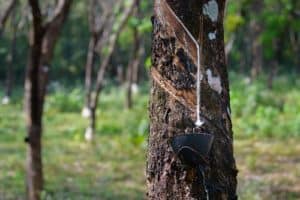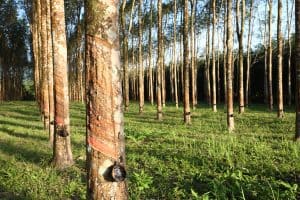The Global Platform for Sustainable Natural Rubber (GPSNR) recognizes the valuable contributions women make to the natural rubber industry and affirms its commitment to fostering an inclusive and sustainable sector. We believe that all individuals, regardless of gender, should have equal opportunities to participate in and benefit from the sector.
As part of this commitment, GPSNR has prioritized gender inclusivity in its capacity-building initiatives, ensuring that women benefit from our projects. To date, 43.49% of the 14,000 smallholders who benefitted through GPSNR’s initiatives are women. We will continue to integrate and prioritize gender inclusivity Key Performance Indicators (KPIs) in relevant sustainability initiatives, ensuring that women have equal representation and access to opportunities. These efforts will help create an environment where all participants can contribute to and benefit from the growth of the sector.
GPSNR is committed to advancing social sustainability alongside environmental goals, recognizing that the well-being of all stakeholders is essential for long-term success in the rubber industry. By supporting gender inclusivity, GPSNR seeks to contribute to a more equitable and sustainable future for the entire natural rubber value chain.





